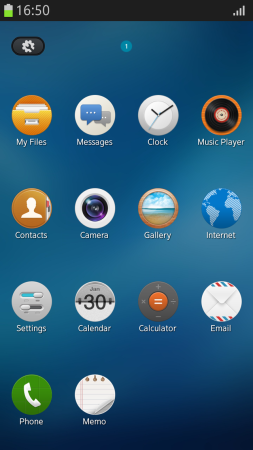 What is Tizen?
What is Tizen?
Tizen is an open-source operating system, meaning anyone can contribute to its development. It is designed as a flexible operating system that provides a consistent user experience across a variety of devices, from mobile phones and tablets to in-car entertainment systems, televisions and wearables.
How does Tizen compare to Android?
Both Tizen and Android are Linux-based open-source mobile operating systems that can be used on a wide range of devices. Tizen’s development is lead by a steering committee chiefly formed of Samsung and Intel employees, while Android’s development is guided by Google.
Android is a much more mature OS, and has seen widespread adoption across thousands of devices that ship millions of units. In contrast, Tizen is still in an early phase of development. The first Tizen smartphone was shipped recently, the Samsung Z, and more devices are expected to follow. Samsung has also released a series of wearables under the Gear brand which run Tizen, and a series of Tizen smart TVs are planned as well.
What’s the app situation for Tizen?
Tizen currently has a small store filled with native apps, written in HTML5 with the help of Linux standards like QT, GTK+ and EFL. Development of apps here should be easier than on Android or on iOS, with standard tools and languages that’ll be familiar to developers of desktop apps. Samsung are also paying developers to create apps for their platform. Together, these factors should spur faster-than-normal development for Tizen.
Android apps can also be converted to run on Tizen through the use of an Application Compatibility Layer (ACL). Open Mobile, who developed the ACL for Tizen, claims that these apps run at full speed and all Android apps are compatible with Tizen after conversion.
Can I try Tizen?
Soon. We will sell the Samsung Z, the first Tizen smartphone, upon its release. In the meantime, if you’re a developer you can try the Tizen SDK to create your own apps or just explore the OS.
Why is Tizen being developed?
Android is popular – maybe too popular. That gives Android creator Google a lot of control over the mobile ecosystem. Samsung and Intel both started their own projects to create an alternative mobile OS, so that they wouldn’t be held at the whim of Google in the future. Both of these projects didn’t get off the ground, but Samsung and Intel were able to join forces and create an OS that used the best ideas of both projects: Tizen. Now, it’s up to them to make Tizen a truly viable alternative, so that they can lessen Google’s impact on the mobile space.
Will Tizen be a success?
It’s too early to tell. Some analysts are calling the OS “dead in the water“, while others are more optimistic. It’s certainly true that Android (and to a lesser extent iOS and Windows Phone) are incredibly popular, and it will take years of concerted effort to have any impact on its market share. For the meantime, Samsung and Intel seem happy to continue their efforts with Tizen.